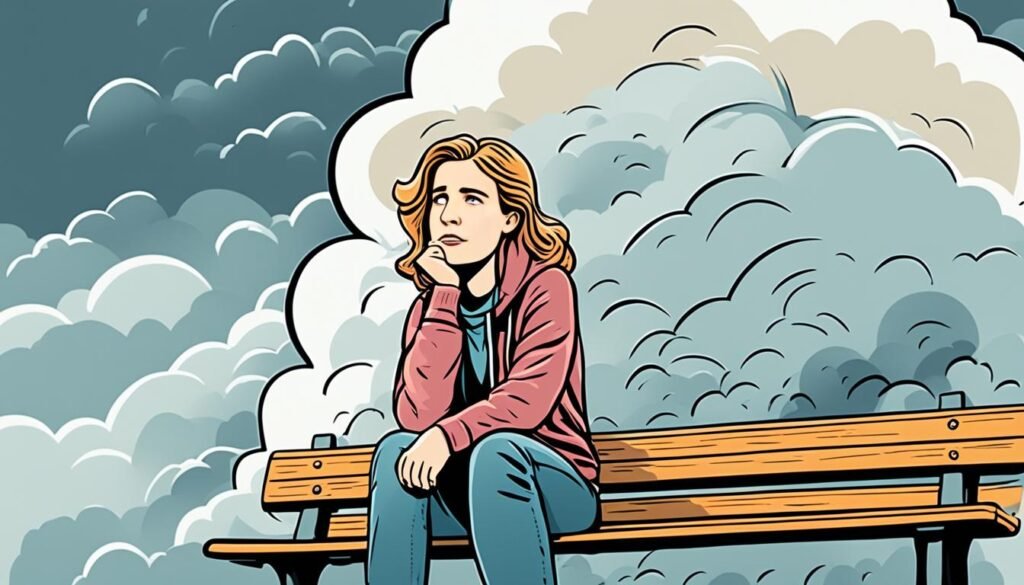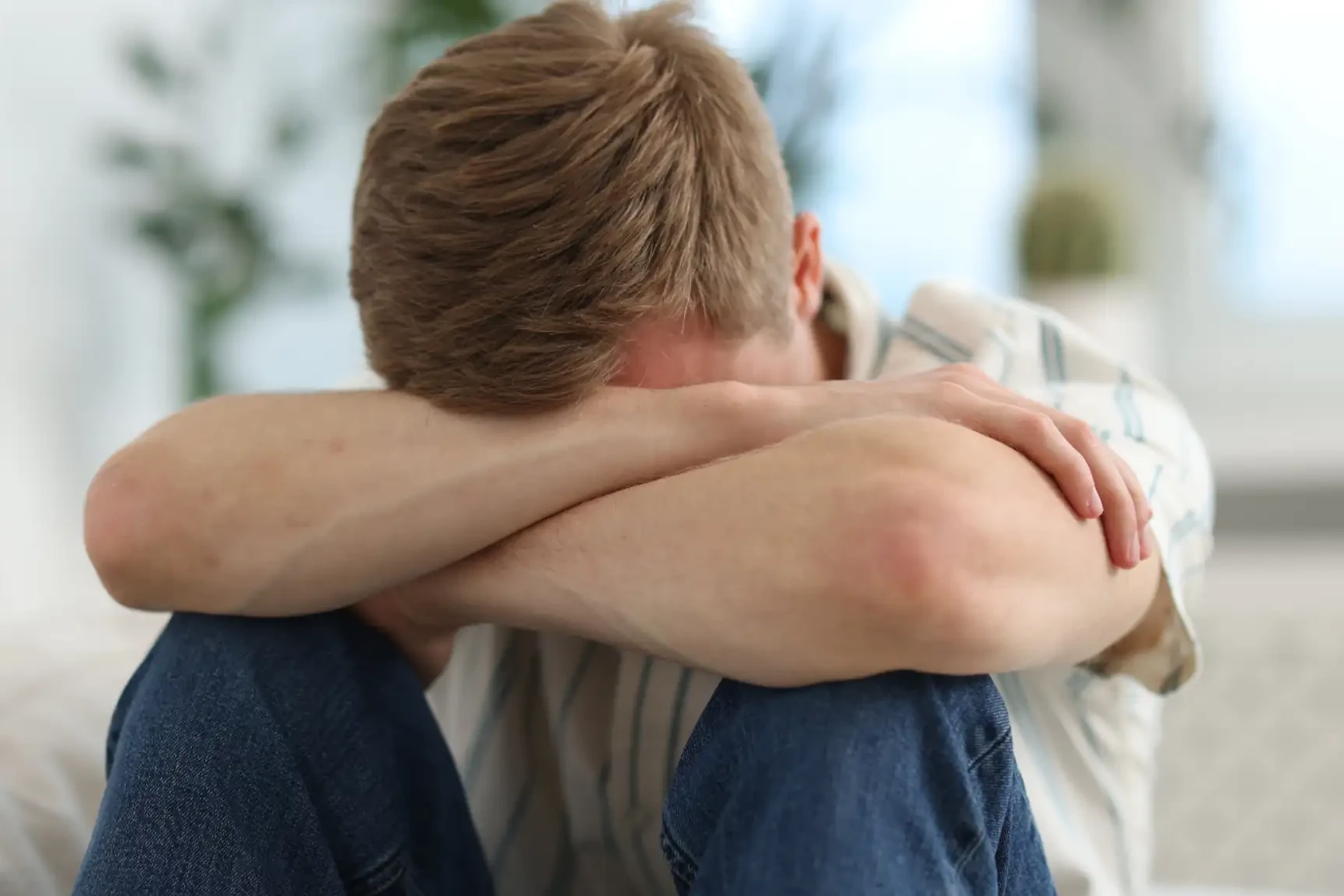It’s key to understand women’s mental health since women often face more mental health issues than men. Issues like depression, anxiety, eating disorders, and hormonal problems are common. Knowing about these common mental health issues for women helps us take action to improve women’s mental wellness.
Many mental disorders in women are tied to hormonal shifts. For example, depression during pregnancy and after menopause can affect a woman’s mood and daily life. Women also tend to have more depression, anxiety, and eating disorders than men.
Table of Contents
ToggleWhy Women’s Mental Health Matters
Women’s mental health is very important. They face special challenges because of biology, society, and culture. It’s key to understand gender differences in mental health to help them better.
Mental Disorders More Common in Women
Women are more likely to have mental issues like depression, anxiety disorders, and eating disorders. Hormonal changes, social stress, and other factors might play a role in this.
Unique Disorders Related to Hormonal Changes
Women also deal with mental health issues linked to hormonal shifts. This includes depression during pregnancy, premenstrual dysphoric disorder (PMDD), and depression during menopause. Knowing how hormonal changes affect women’s mental health is key to good care.
By focusing on women’s mental health needs, we can create better support systems. This helps improve their lives and mental well-being.
Symptoms of Mental Disorders in Women
It’s key to know the signs of mental health issues in women to get the right help. Women face many emotional, psychological, and social challenges with mental health disorders. Knowing these signs can help you spot problems early and improve your mental health.
Some common symptoms of mental health issues in women include:
- Persistent feelings of sadness, hopelessness, or emptiness
- Anxiety, panic attacks, or excessive worrying
- Changes in sleep patterns, such as insomnia or oversleeping
- Significant changes in appetite, leading to weight loss or gain
- Difficulty concentrating, making decisions, or completing tasks
- Irritability, mood swings, or emotional sensitivity
- Withdrawal from social activities or relationships
- Unexplained physical symptoms, such as headaches or chronic pain
- Thoughts of self-harm or suicide
The symptoms of mental health issues in women can vary a lot. Not everyone will have the same symptoms. The severity and how long these symptoms last can also vary. If you or someone you know is showing these signs, getting professional help is key for diagnosis and treatment.
Knowing the common symptoms of mental health issues in women helps you take steps for your well-being. Remember, your mental health is as important as your physical health. It’s vital to make it a priority.
Risk Factors Affecting Women’s Mental Health
Many women struggle with their mental health due to various risk factors. These include social, economic, and environmental factors that affect their well-being. It’s important to understand these factors to help women with their mental health needs.
Social and Economic Factors
Women often deal with more social and economic stress than men. Being a main caregiver, living in poverty, and facing workplace discrimination are some of these challenges. These issues can lead to mental health problems like depression and anxiety.
Physical and Sexual Abuse
Many women suffer from physical or sexual abuse, which greatly affects their mental health. Abuse can cause post-traumatic stress disorder (PTSD), depression, and other mental health issues. It’s crucial to address how abuse impacts women’s mental health.
We can improve women’s mental health by recognizing and tackling these risk factors. It’s key to offer support, resources, and mental health services. This helps empower women to overcome their challenges.
Mental Health and Life Events
Women go through many life changes that can affect their mental health. Important events like perinatal depression and menopause can change how they feel. These changes can be tough on their mental well-being.
Perinatal Depression
Perinatal depression is a common issue for women during pregnancy and after giving birth. It makes them feel sad, anxious, and even think about harming themselves or their baby. It’s important to get help from a professional to deal with this.
Menopause and Mental Health
Going through menopause can also make women feel anxious, moody, and depressed. These feelings come from the big hormonal changes they go through. Women facing these mental health issues should talk to their doctors about how to handle them.
It’s key to understand how life events and hormonal shifts affect women’s mental health. Knowing the risks and getting the right support helps them get through tough times better.
Impact of COVID-19 on Women’s Mental Health
The COVID-19 pandemic has deeply affected women’s mental health. Women are often frontline healthcare workers and do more unpaid care work. They also work in low-paid and insecure jobs, making them more likely to face mental health issues.
Studies show the pandemic has made gender disparities worse. Women now have higher rates of depression, anxiety, and stress than men. This is because they handle household duties, childcare, and eldercare more, especially during lockdowns.
The economic effects of the pandemic have also been tough on women. Many have lost their jobs or seen their work hours cut. This financial stress adds to their mental health problems, causing feelings of isolation and hopelessness.
Women are also facing more domestic violence and abuse during the pandemic. Lockdowns make it harder for victims to get help, making their mental health worse.
The COVID-19 pandemic has had a big impact on women’s mental wellbeing. We need to focus on their unique challenges to support their mental health and resilience.
Protecting and Improving Women’s Mental Health
Keeping women’s mental health safe and improving it is key to their overall health. Getting help from professionals and taking care of oneself are two main ways to do this. These steps are crucial for protecting and enhancing mental health.
Seeking Professional Help
Talking to mental health experts like therapists or counselors is very helpful. They offer treatments like therapy and sometimes medication for mental health issues. This support helps women find ways to cope, lessen symptoms, and improve their mental health.
Self-Care Strategies
Women can also help their mental health by taking care of themselves. This means keeping up with friends and family, staying active, and managing stress well. Self-care helps improve mental wellbeing and makes women stronger against mental health challenges.
- Maintain social connections with family and friends
- Engage in regular physical activity, such as yoga or walking
- Practice stress management techniques, like meditation or deep breathing
- Prioritize self-care activities that bring joy and relaxation
By using both professional help and self-care, women can actively work on their mental health. This leads to better overall wellbeing.
Mental Health and Poverty
Poverty greatly affects women’s mental health. Studies reveal that women in poverty often face depression and anxiety. In fact, 29% of these women struggle with these issues, while only 16% of those who are not poor do.
Poverty and mental wellness are closely linked. Women in poverty often lack healthcare access and face high stress levels. These factors can lead to mental health problems. Women who have faced abuse are especially at risk.
It’s vital to address poverty and women’s mental health together. By understanding their challenges, we can help. This means improving mental health services, tackling community barriers, and fighting the stigma of mental illness through education.
To solve this issue, we need a comprehensive plan. By focusing on the economic factors, we can help women improve their mental health. This will strengthen our communities as a whole.
Women’s Mental Health and Race/Ethnicity
Women from different racial and ethnic backgrounds face unique mental health challenges. Black, Asian, and Minority Ethnic (BAME) women often deal with racism and stigma. These issues can make mental health problems worse.
Research shows that BAME women have higher rates of mental health issues like depression and anxiety. This shows we need to focus on their mental health needs. We must provide support that fits their cultural backgrounds.
Things like income level, healthcare access, and beliefs about mental health affect BAME women’s mental health. We must tackle these issues to improve their well-being. This ensures all women get the support they need to do well.
Understanding and meeting the mental health needs of women from various racial and ethnic groups is key. This approach helps create a fair and welcoming society. It ensures all women, no matter their race or ethnicity, can get the help they need for good mental health.
Mental Health Issues in Young Women and Girls
Mental health is a big concern for young women and girls. In fact, 75% of mental health problems start before they turn 24. Young women often face more mental health issues than young men.
Self-Harm and Suicide Rates
Self-harm and suicidal thoughts are rising among young women. They are more likely to harm themselves and try to take their own lives than young men. This shows that mental health problems are hitting this group hard.
Common Mental Disorders
Young women also struggle with anxiety and depression more often. These issues can really affect their life, like their school work, friends, and happiness. It’s important to help them deal with these problems so they can do well.

We need to understand the challenges young women and girls face to help them. Knowing about self-harm, suicide, and common mental disorders helps us make better support plans. This way, we can make a safer and more caring place for their mental health.
Women’s mental health
Women’s mental health needs a full and caring approach. They deal with special challenges that affect their feelings, like hormonal shifts and social and economic issues. By knowing the mental health issues women often face and the reasons behind them, we can make plans to help them feel better.
Supporting women’s mental wellness means looking at their physical, emotional, and social needs. We must see how big life events like pregnancy, childbirth, and menopause affect their mental health. It’s also key to look at how social and economic issues like gender bias, domestic violence, and poverty play a part.
To protect and boost women’s mental health, we need a wide-ranging strategy. This means helping women get professional help when they need it and supporting self-care like mindfulness, exercise, and being with friends. By helping women put their mental health first, we can help them deal with their unique challenges and feel better overall.
Looking after women’s mental health is key to their full well-being and helping them do well in life. By taking a full approach, we can really help improve the mental health and strength of women from different backgrounds and experiences.
Conclusion
Women’s mental health is a key issue that needs more focus and support. We must understand the mental health challenges women face and the factors that affect their well-being. By doing so, we can improve their mental health and resilience.
Key points from the discussion highlight how mental disorders affect women more than others. They deal with hormonal changes and life events that make things harder. It’s important to offer healthcare and support that fits their needs.
Addressing gender, socioeconomic status, and race/ethnicity is key to giving women equal mental health care. This approach ensures services are comprehensive and fair.
Putting women’s mental health first helps everyone. It makes communities healthier and more prosperous. By creating a supportive environment, we help women succeed and build a fairer society.
FAQ
What are the common mental health issues that affect women?
Women often deal with mental health issues like depression and anxiety. They also face unique challenges due to hormonal changes. This includes perinatal depression and premenstrual dysphoric disorder.
Why is women’s mental health important?
Mental health issues are more common in women than men. They face special challenges linked to hormonal changes. It’s key to understand these issues to support women’s well-being.
What are the symptoms of mental disorders in women?
Women with mental health issues may show emotional, psychological, and social problems. It’s important to recognize these symptoms to get the right support.
What are the risk factors that affect women’s mental health?
Factors like being a caregiver or living in poverty can hurt women’s mental health. Women often face these issues more than men. This can lead to depression, anxiety, and PTSD.
How do major life events and hormonal changes affect women’s mental health?
Big life events like pregnancy and menopause can really affect women’s mental health. Issues like perinatal depression are common during these times.
How has the COVID-19 pandemic affected women’s mental health?
The COVID-19 pandemic has hit women’s mental health hard. Women are often frontline healthcare workers or do unpaid care work. This increases their risk of mental health issues.
How can women protect and improve their mental health?
Women can boost their mental health by getting professional help and practicing self-care. This includes talking to therapists, taking medication, and keeping up social connections.
How does poverty affect women’s mental health?
Poverty can really hurt women’s mental health. 29% of poor women suffer from mental health disorders, compared to 16% of those who are not poor. Abuse adds to this risk.
How do race and ethnicity impact women’s mental health?
BAME women face extra challenges that affect their mental health, like racism and stigma. They have higher rates of mental disorders than White British women. We need to tackle these disparities.
What mental health issues are young women and girls particularly vulnerable to?
Young women and girls are at high risk for mental health problems. By age 24, 75% of mental health issues start. They’re more likely to experience self-harm, PTSD, and common disorders like anxiety and depression than young men.
Source Links
About The Author

Medically reviewed by Dr. Chandril Chugh, MD, DM (Neurology)
Dr. Chandril Chugh is a U.S.-trained, board-certified neurologist with expertise in diagnosing and managing neurological disorders, including migraines, epilepsy, Parkinson’s disease, and movement disorders. His clinical focus includes evidence-based neurological care and patient education.
All content is reviewed for medical accuracy and aligned with current neurological guidelines.




